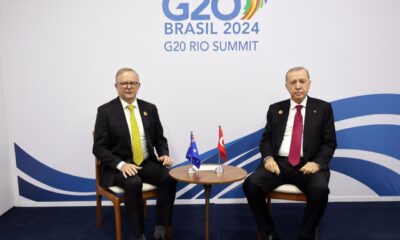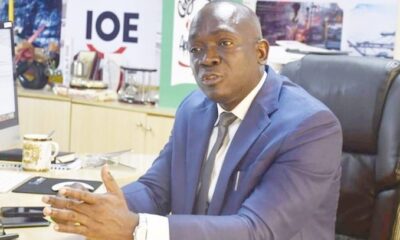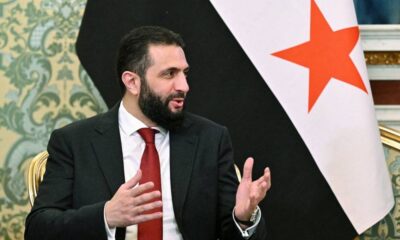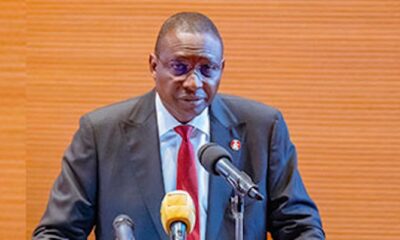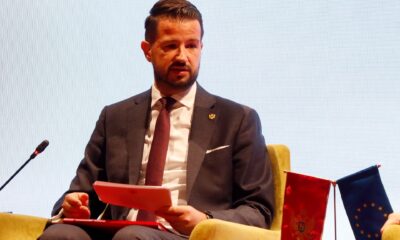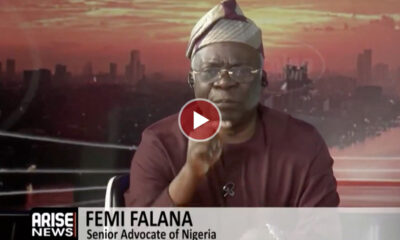Politics
ECOWAS Appeals for Global Support Against Rising Terrorism Threat
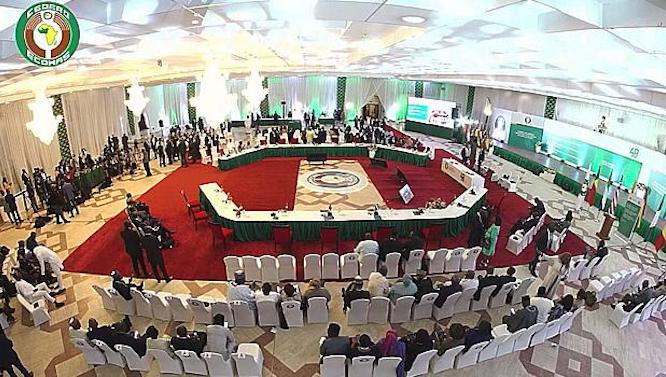
The President of the Economic Community of West African States (ECOWAS) Commission, Dr. Omar Touray, has issued a stark warning to the United Nations regarding the escalating threat of terrorism in West Africa and the Sahel region. During a briefing to the UN Security Council, he emphasized that if not addressed decisively, terrorism poses an existential threat to the stability of the area. This urgent appeal comes as the region grapples with increasing violence, economic disruption, and political mistrust.
In a statement released from Abuja, ECOWAS highlighted that terrorism has transitioned from being confined to specific areas in the Sahel and the Lake Chad Basin to becoming a region-wide menace. The data presented revealed approximately 450 terrorist incidents from January to November 2025, resulting in over 1,900 deaths. Notably, the central Sahel accounted for nearly 80% of these attacks and 85% of the fatalities, underscoring that no country is immune to this growing challenge.
Beyond the rising casualty figures, Dr. Touray pointed out a concerning new tactic employed by terrorist groups: economic sabotage. These groups have increasingly targeted the distribution of essential commodities, particularly fuel, leading to widespread economic hardship and hindering cross-border movement. “This is no longer just a security problem,” he stated, “It is an existential threat touching every facet of life—trade, mobility, livelihoods, and the basic stability of states.”
In response to the deteriorating situation, ECOWAS is expediting the activation and deployment of its long-planned Standby Force. In August, defence and finance ministers convened to finalize a structure and funding model, relying on domestic contributions, external partners, and resources expected under UN Security Council Resolution 2719. Initially, a 1,650-member counter-terrorism brigade will be deployed, with plans to expand this to 5,000 personnel as resources allow.
Dr. Touray emphasized that the Standby Force is just one element of a comprehensive counter-terrorism strategy. This strategy integrates military action with governance reforms, community engagement, and economic development initiatives. Acknowledging delays in the original Action Plan due to insufficient funding, he noted that a revised version is now being implemented.
ECOWAS called on the UN Security Council to adopt a flexible approach in implementing Resolution 2719 and to ensure that funding for counter-terrorism efforts is predictable and sustainable. During the 10047th UN Security Council meeting, Dr. Touray outlined how terrorists are increasingly waging “economic warfare” by disrupting fuel supplies and trade routes, threatening both Sahelian and coastal West African states.
In his address, he also highlighted ongoing initiatives aimed at rebuilding trust and advancing political dialogue with member states like Mali, Burkina Faso, and Niger, which have experienced significant political upheaval. He reiterated that the socio-economic drivers of extremism must also be addressed.
Dr. Touray detailed both kinetic and non-kinetic measures being pursued, including the accelerated operationalisation of the ECOWAS Standby Force. He reaffirmed ECOWAS’ commitment to collaborating closely with the UN, African Union, and other partners to safeguard peace and resilience across West Africa and the Sahel.
The meeting also featured a briefing from UN Secretary-General António Guterres, who condemned the worsening security and humanitarian situation in the Sahel. He stressed the urgent need for coherent regional and international action to combat the rising tide of terrorism and violent extremism in the sub-region.
President Julius Maada Bio of Sierra Leone, current chair of both ECOWAS and the UN Security Council, underscored that terrorism is a collective global challenge which necessitates renewed international cooperation. Concerns were raised regarding the proliferation of overlapping security initiatives in the Sahel, many of which have led to fragmentation and a lack of regional ownership.
Dr. Touray identified that the most significant barrier to effective collaboration is not a lack of funding or military capability, but rather a lack of trust among governments in the region. He pointed out that growing suspicion among nations, including between ECOWAS and the Alliance of Sahel States (AES), has weakened intelligence-sharing and stalled joint border operations. “No amount of money or equipment will defeat terrorism if we cannot trust one another,” he cautioned. “Our divisions must not be exploited—they must be bridged.”
Despite recent political tensions, ECOWAS has reported progress in dialogue with the AES. Both parties have agreed to maintain existing arrangements on trade and free movement until new agreements can be finalized. AES members intend to continue participating in key ECOWAS institutions, such as the Inter-Governmental Action Group Against Money Laundering in West Africa (GIABA) and the ECOWAS Bank for Investment and Development (EBID).
The discussions also focused on the financial networks that support extremist activities. Terrorist groups in West Africa continue to fund operations through various illicit means, including illegal mining, kidnapping for ransom, trafficking, and money laundering. Within GIABA, West African countries have been working to enhance regulatory frameworks aligned with the Financial Action Task Force (FATF) recommendations to improve cross-border cooperation and support enforcement agencies.
Nevertheless, significant challenges remain, including porous borders and weak enforcement capacities. The rate of actual prosecutions for terrorist financing remains alarmingly low.
In closing, Dr. Touray made a direct appeal to the UN Security Council and global partners, stating, “To defeat terrorism, we need trust, coordination, and sustained support. This battle cannot be won by weapons alone—it requires unity, political will, and a shared commitment to protecting the people of West Africa.” His emphatic message resonated throughout the chamber: “Our region is determined to fight. But we cannot—and should not—fight alone.”
-

 Entertainment3 months ago
Entertainment3 months agoAnn Ming Reflects on ITV’s ‘I Fought the Law’ Drama
-

 Entertainment4 months ago
Entertainment4 months agoKate Garraway Sells £2 Million Home Amid Financial Struggles
-

 Health3 months ago
Health3 months agoKatie Price Faces New Health Concerns After Cancer Symptoms Resurface
-

 Entertainment3 months ago
Entertainment3 months agoCoronation Street’s Carl Webster Faces Trouble with New Affairs
-

 Entertainment3 months ago
Entertainment3 months agoWhere is Tinder Swindler Simon Leviev? Latest Updates Revealed
-

 Entertainment4 months ago
Entertainment4 months agoMarkiplier Addresses AI Controversy During Livestream Response
-

 Science1 month ago
Science1 month agoBrian Cox Addresses Claims of Alien Probe in 3I/ATLAS Discovery
-

 Entertainment4 months ago
Entertainment4 months agoKim Cattrall Posts Cryptic Message After HBO’s Sequel Cancellation
-

 Entertainment2 months ago
Entertainment2 months agoOlivia Attwood Opens Up About Fallout with Former Best Friend
-

 Entertainment3 months ago
Entertainment3 months agoMasterChef Faces Turmoil as Tom Kerridge Withdraws from Hosting Role
-

 Entertainment4 months ago
Entertainment4 months agoSpeculation Surrounds Home and Away as Cast Departures Mount
-

 World3 months ago
World3 months agoCole Palmer’s Mysterious Message to Kobbie Mainoo Sparks Speculation

